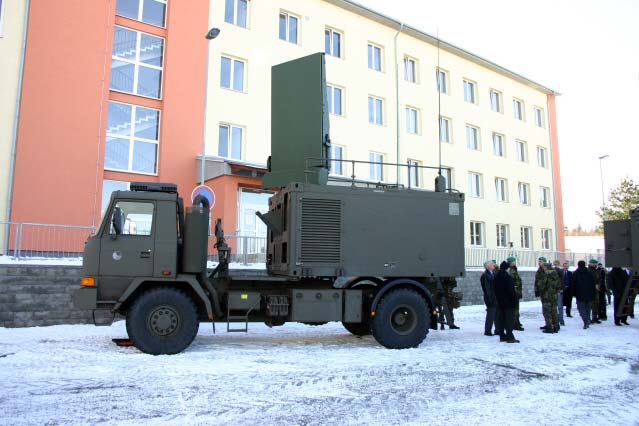Disinformation is intentional false information spread to deceive its recipients. It is not a new problem but the speedy and effortless reach of social media platforms has made it more prominent. If an institution is making a decision based upon false information it would be contradictory to national security interests. Disinformation is disruptive and further degrades the international perception of the target state. According to an expert in the book Cyber Warfare: Its Implication on National Security said, “every time carries with it new system and techniques for perusing a war”. Pakistan-India having security threats like military engagement, virtual war of words, and trying to hack each other secret information is a question mark upon the stability of South Asia.
According to Sun Tzu “know your enemy, know yourself”. Cyber warfare is more an attack on adversity information to create a sense of fear and suspicion. This spread of misinformation, propaganda, and cyberspace insecurities can bring impulsive behavior out of the enemy.
The states Pakistan and India always struggle to gain strategic gain over one another, after the development of nuclear weapons both states used cyberspace as a source to deter enemies with slight damage. Pakistani hackers in 1998 efficiently penetrated in Atomic Research Center of India, whereas Pakistani hackers showed many successful projects as this in the late 1990s. According to NTISB, Indian backed group “SideWinder” uses Pakistani group identities to gain access to the legitimate mailing system of various departments of Pakistan. The domain name used by attackers in their generated email was mofa-gov-pk directed to the Ministry of Foreign Affairs of Pakistan.
India influenced the Arshaf Ghani regime in Afghanistan, by building an anti-Pakistan narrative as per the same rules followed by them on Bengalis in 1971 which resulted in the separation of East Pakistan. India has generated a perspective both regionally and globally that Pakistan is a failed state with fertile land for non-state actors. India is making a fuss over Pakistan’s reputation by using demotic and international media as there is no recognition given the sacrifices Pakistan made for the war against Terrorism, on the contrary, many separation groups of Baluchistan are being sponsored by India to spread disinformation against Pakistan. Furthermore, Tehreek-e- Taliban Pakistan (TTP) was also reported to be influenced by India. Dr Moeed Yusuf said Pakistan will try to expose Indian operations with data as this is negatively influencing Pakistan’s soft image
Indian Anchor Arnab Goswami was caught red-handed while making a serious false allegation against Pakistan for being involved in the Kabul Serena Hotel incident, according to him Fighters were resisting Taliban and Pakistani force’s control over the valley. He further added, Go and check the fifth floor of Serena Hotel in Kabul how many Pakistani officers were in the room. The next day his allegation was declared false by a PTI spokesperson saying there are only 2 floors of Serena Hotel Kabul.
Indian Cornicles is incriminated example of it, as per the EU Disinfo lab since 2005 India has created 750+ fake media outlets covering 119 countries generating and promoting disinformation using identity theft of experts like Martin Schulz former president of the European Parliament, James Purnell a former UK government minister and prominent figure in human rights Prof Louis B.Sohn while being decreased, by doing this they damaged imagine of states like Pakistan while this resulted in improving perceptive of India in EU parliament.
According to the International Federation of Library Associations(IFLA), India produced the largest amount of disinformation. Moreover, according to the International Fact Checker Network biggest trend in India was “sectarian communalism” leading to calls for genocide against Muslims. The cyber-activists of BJP did anti-Muslim prejudice by using hashtags like Nizamuddin idiots, and Corona jihad.
Pakistan being a nuclear state makes it more vulnerable to deformation and cyber-attacks. Stuxnet is a sophisticated example although it was Iran-associated but can be taken as an eye opener for other states, whereas missions like Operation Orchard where Israel destroyed the Syrian nuclear program system by using Cyber and kinetic means. Pakistan also faces a nuclear security threat from India and sponsored non-state actors. In 2021 when Pakistan faced the Pegasus cyber-attack in which government officials’ cell phones were hacked, which could be used for data collecting through microphones about crucial discussions, surveillance could result in action that would not be in the national interest of the state. Cyber blockage is another threat, like in WWI in which the British blocked Germany’s communication with another state. India could also isolate Pakistan to gain political and economic advantages.
The 18 September 2016 Uri attack and so-called propaganda of the surgical strike did not just remain within the boundaries, the propagandists brought it towards a media war for the retaliatory response, following trending tweets and hashtags manipulated multiple mindsets. Involved actors connected smart dots to express the BJP government’s achievement and gain the support of the public, furthermore, movies were made to over-hype the surgical strike to upraise the patriotic nature of the BJP.
Disinformation tactics and cyber warfare capabilities of India are impacting China too. Indian media outrange the Uyghur genocide in China by comparing Xi Jinping’s atrocities to Hitler’s genocide. Ajay Kumar gave the statement “Chinese Muslims do not have freedom to practice religion” while Hindutva also banned religious practice in India. This statement was a step to create hatred against China in the Muslim community. Hence the majority of Pakistan’s population. In addition to this Propaganda against CPEC, Indians called it a debt trap by China over media platforms, which also left an impact on the citizens of Pakistan
Cyber can also challenge the deterrence stability of South Asia, As If Pakistan nuclear arsenal is hacked by India, this would shift the strategic stability balance towards India because Pakistan Nuclear capability bring two state powers towards equilibrium, the Massive Destruction concept deter state to engage in all war. Moreover, Disinformation with the advancement of technology is adding fuel to the fire. The state must take steps to counter the disinformation campaign of India on regional as well as international levels by formatting proper departments for Information Management.
Table of Contents
ToggleAyana Sheikh
Ayana Sheikh is an undergraduate student of Strategic Studies at the National Defence University, Islamabad. Her areas of interest are non-traditional security threats, information warfare, maritime security, and technological studies in the Indo-Pacific region














